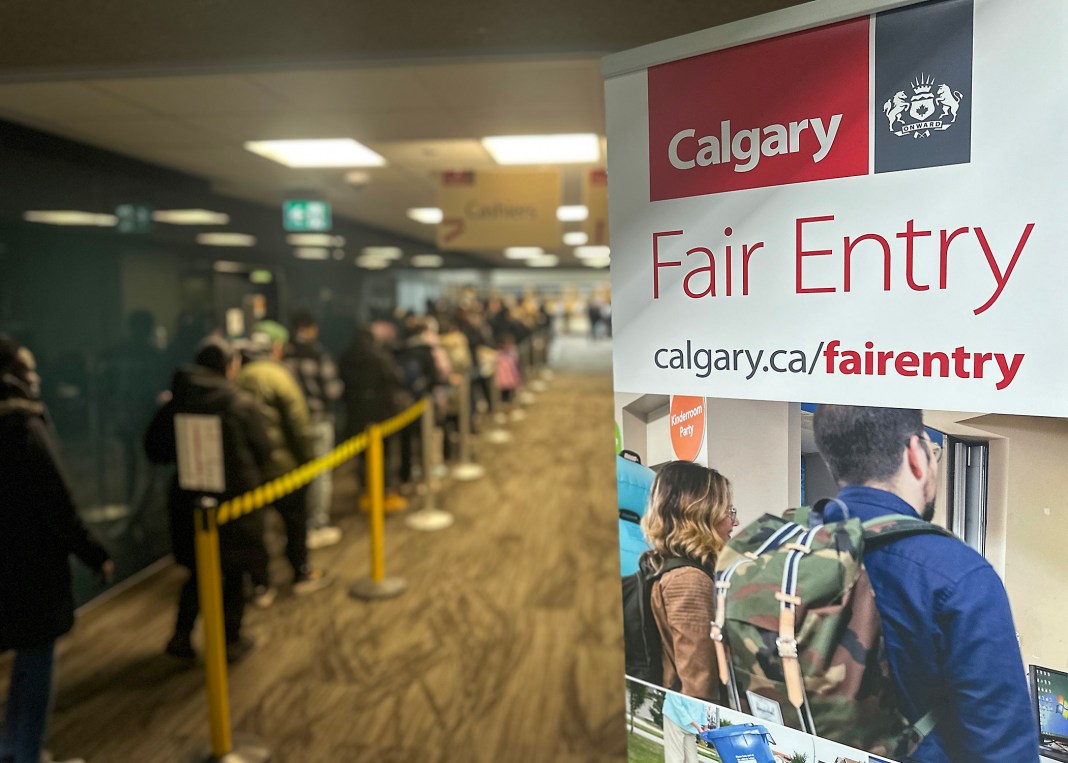Pay up, Alberta.
The City of Calgary has voted in favour of asking the province to relinquish part of its increased take of the education portion of property taxes, and to pay the full freight of Calgary tax on properties it owns within the city limit.
An item of urgent business was added to Tuesday’s regular meeting of Calgary city council under the title Intergovernmental Affairs (IGA) update. The item was pushed to a closed session portion of that meeting. This decision was the result of that closed session.


It asks for a decrease in the province’s property tax requisition, something they increased this year, to offset the provincial cut to the program. They also want a grant equivalent to the full amount of property taxes they owe on provincially-owned properties in the city. During debate, Ward 8 Coun. Courtney Walcott said that the province only pays 50 per cent of their required tax, down from 75 per cent in prior years. City of Calgary administration will return back to council on June 18 with recommendations to continue the program.
The mayor spoke with reporters Tuesday afternoon, critical of the province’s decision to cut funding.
“I don’t think there’s any way to explain this other than saying it’s just cruel. This is an absolute cruelty to low-income Calgarians who absolutely need this funding to be able to get through their lives,” she said, noting that it’s another example of the province offloading costs to municipalities.
“They’re expecting us to find the money somewhere to make this whole, and you also know what that means – that impacts your property taxes.”
The mayor said Calgary already foots 83 per cent of the $38 million – or $31.8 million.
“That’s how much we care about low-income Calgarians and seniors. The provincial government was only in for 6.2 and they can’t even come up with that,” the mayor said.
Edmonton Mayor Amarjeet Sohi also issued a statement on the province’s decision. He said the low-income transit pass program was an overwhelming success in that city.
“At a time when Edmontonians are struggling to afford their basic needs and demand for this program has increased 150 per cent since 2016, the decision to defund this program in Edmonton and Calgary shows that the Province’s priorities are in the wrong place.”
The province responded late Tuesday afternoon. They outlined the investments they’re making in large transit infrastructure projects in Calgary, along with providing additional funding for social supports, and rural transportation, where the help is needed most.
“As transit is a municipal responsibility in the two big cities, we are investing more in core services delivered by the province like homelessness and housing. We are also providing support to the two cities through the Family and Community Support Services program which provides Calgary FCSS with $31 million to support low-income Albertans and Edmonton FCSS with $23.3 million,” read a response from Alexandru Cioban, press secretary for Minister of Seniors, Community and Social Services, Jason Nixon.
“Budget 2024 also provides $41 million for Homeward Trust in Edmonton and $41 million for Calgary Homeless Foundation to provide important services in the largest cities. Alberta’s government also spends over $108.1 million for the province wide homeless shelters budget to protect the most vulnerable.”
Big uptick in LITP
Calgary has provided a low-income transit pass since 2005, according to the City. In 2017, the province began providing annual grants for $4.5 million to help offset the cost of delivering the program. In 2023, the province topped up the Calgary program by $1.7 million after they’d asked for it to be extended to seniors living in multigenerational housing.
According to City of Calgary data, 129,000+ Calgarians accessed the program between January and March this year. That’s a 27 per cent increase compared to Q1 2023.
Ward 5 Coun. Raj Dhaliwal said the City of Calgary having to cover the cost means an additional quarter-point added to a property tax increase. They’ve already capped the max property tax increase for 2025, so they’re going to have the find the dollars from somewhere, he said. He said this decision by the province could push more people into extreme poverty.
“These people are already struggling and that’s the reason they qualify for this kind of program. Now you’re picking the most vulnerable group for this. That to me does not make sense,” he said.
Ward 7 Coun. Terry Wong, commenting on the reports from Edmonton about the low-income transit pass, said he didn’t think the decision was appropriate.
“We're talking about affordability, and when we talk about the struggles our seniors have, whether from a food or housing or other perspectives, the last thing we want to do is nickel and dime our municipal governments and have the effect on our seniors, particularly when this hasn't been applied consistently across Alberta,” Wong said.
Wong said they’d have to advocate for the province to continue the program, or find a way to fund it.
“One thing I will say is that we're not we're not going to let the seniors down,” he said.
He did say that he didn’t see it as the province offloading further costs on the city. Coun. Wong said that the province has to find a way to stay fiscally responsible.
“The question then, it’s more about priorities. What's the priority for the province? Is the priority about funding, for example, the Alberta rail program as, opposed to putting money into supporting the seniors that are here today,” Wong said.
While not speaking directly about the transit funding, Mayor Gondek said it’s difficult to tell what commitment the province is willing to carry forward with.
“They have made many, many commitments to us over the years that had been stripped away over time,” she said.
“So, I'm not sure exactly what their intention is. I would love to understand what they're doing before they make big announcements about it.”
The impact on Calgarians
Former Calgary Mayor Naheed Nenshi, who is running for the Alberta NDP leadership, posted to X (formerly Twitter) that the low-income transit pass was one of the most impactful things they did in 11 years.
"I have cried hearing the stories of how it changed the lives of poorer people in our community. And it was cost effective! (for Calgary, 1/20 the price of the Turkish Tylenol, half of the cost of the pension plan advertising)," he wrote.
"Yet again, this government punches down on vulnerable people for no reason."
Meaghon Reid, executive director of Vibrant Communities Calgary, a non-profit organization that advocates for policy to address root causes of poverty, said that this was unexpected given we're in the middle of the largest-ever affordability crisis in Calgary and Edmonton. She said that if you qualify for low-income subsidies, it means you're spending most of your income on basic necessities like rent, food or medication.
"If this pass gets compromised, because there's no more investment from the province, it's going to mean that people are going to have to make some really difficult trade offs," she said.
"Potentially not be able to get to work, not pay their rent, not meet their electricity bills, and so this could have a very significant impact on people."
Reid hopes there's further dialogue between the province and Alberta's two biggest cities to ensure people aren't whittled off the low-income pass.
"One thing we know is that if we do not invest in poverty reduction, then things become incredibly much more expensive," she said.
"So for example, if people can't access low-income transit and lose their job, it's much more expensive for that person to go on income support."
The Alberta NDP was equally critical of the province's decision.
"This important program was cut by millions as the UCP earmarked $9 million for their new 15-year rail study, announced just yesterday," said Lorne Dach, NDP Transportation Critic.
"(Premier) Danielle Smith doesn’t seem concerned if Albertans can afford to take the bus to get to their jobs or access health care, so long as she can put her name on a rail plan that may or may not materialize by the year 2039."



